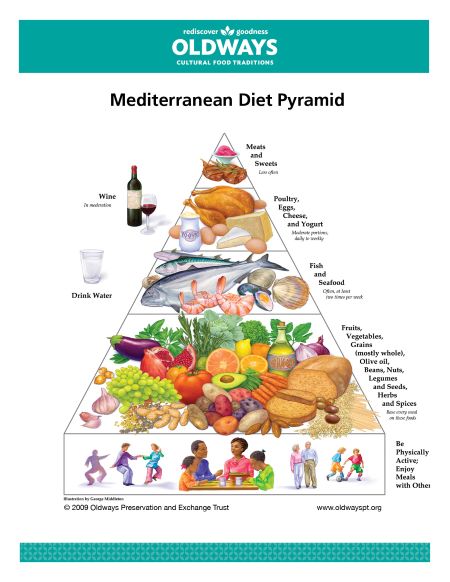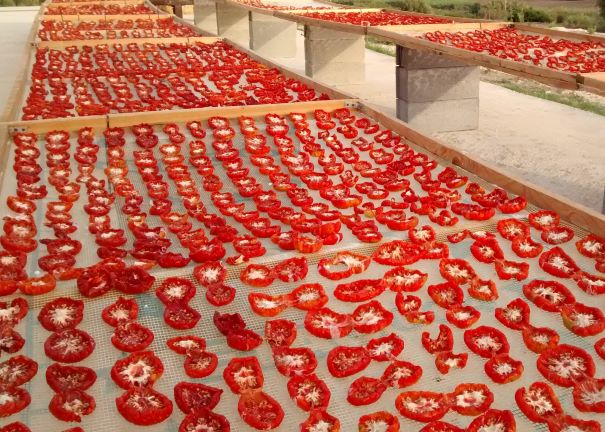
Olive harvesting by hand or by machine – what producers say
Il circolo is a small traditional olive oil producer. Our olives are still picked by hand and that is quite

We cook with extra virgin olive oil! We have found that olive oil is at its best in simple dishes with products from the region. Olive oil also plays a central role in Mediterranean cuisine. It is often described as beneficial to health. We wanted to know which of these is true. What is the Mediterranean diet?
The Mediterranean diet is not a diet that prescribes exactly what to eat, but refers to the Mediterranean lifestyle. Studies have shown that people in this region – especially Italy and Greece – are healthier than other Europeans: they suffer less often from obesity, diabetes and cardiovascular diseases. In addition to the Mediterranean diet, other features of the Mediterranean lifestyle – such as the culture of eating together and regular exercise – are part of the Mediterranean diet.
The Mediterranean diet is characterised by the Mediterranean climate and traditional Mediterranean agriculture with three land uses: Cereals in the lowlands, grapes and olives on the steep, less fertile slopes and livestock in the mountainous areas. You see cereals in the form of bread and pasta, grapes in the form of wine and fruit. Olive oil is the only vegetable fat used in cooking. Meat comes mainly from lamb and mutton, whose milk was processed into cheese. Animal proteins were consumed in small quantities. Fruit and vegetables are mainly consumed from local and seasonal productions.
The Mediterranean diet is based on this original dietary pattern. Although the pyramid shape (see below) indicates which foods are consumed and in what proportion, for example more fruit and vegetables and less dairy products, it does not prescribe specific quantities. Everyone decides for themselves how much food a meal contains, as this varies according to the degree of physical activity and body size.
Source: rediscover goodness oldways
A normal meal in the Mediterranean diet is characterised by:
Diet is only one part of the Mediterranean diet. These features of the Mediterranean lifestyle are also considered an important part of the Mediterranean diet.

In Mediterranean culture, a remarkable amount of time is devoted to food and cooking. If you ask a Sicilian where is the best place to get a certain ingredient or product, you have just started a whole conversation in which all kinds of people interfere or are approached.
Eating together at the table is important. No rushing or eating with your plate on your lap in front of the TV. Time is reserved for eating together. It is a social affair. So loneliness has less chance. Eating comfortably also helps with digestion – because you unconsciously chew more – and you also eat less because you concentrate less on the food. That’s why eating together is also the basis of the Mediterranean diet.
As established, the Mediterranean diet is inseparable from the Mediterranean lifestyle. In addition to eating together and eating healthily, the Mediterranean diet also includes a portion of daily physical activity. It does not have to be heavy physical activity or exercise. Suggestions include walking, exercising, playing and dancing. This can also have a social component and be fun too. It is especially important to exercise regularly.

The idea of regional and seasonal food is not a new concept, but goes back to the way our (great) grandparents lived: in rhythm with the seasons and with ingredients from the region. This is clearly reflected in Mediterranean cuisine. Advantages of this are:
When fruits and vegetables are harvested from suitable soil and at the right time – i.e. in season – they contain more nutrients. This makes them healthier and tastier. If they also come from the neighbourhood, they don’t have to come from far and can be in the shop and on your plate in no time. This prevents them from losing nutrients and flavour.
When products are in season, they do not have to be grown in a greenhouse. That costs a lot of energy. And when they are grown locally, it means they don’t have to travel as far and therefore fewer ‘food miles’ are travelled by boat, truck or plane. Regional products that are in season are cheaper and also better for the environment.
It may seem monotonous to cook with seasonal and local ingredients. However, it also challenges people to be creative with the abundant seasonal produce. For example, by processing them in different ways so that they can be stored for longer. There is a real art to preserving, drying and fermenting ingredients so that you can enjoy them all year round.

According to the Harvard Diet Review, the Mediterranean diet can help you lose weight, but in the end, losing weight is about reducing your calorie intake per day. The Harvard School of Public Health itself said the following in 2018: “Research supports the use of the Mediterranean diet as a healthy diet to prevent cardiovascular disease, extend lifespan and promote healthy ageing. When combined with calorie restriction, the diet can also support healthy weight loss.”
One important reason why the Mediterranean diet works for weight loss is the use of olive oil. A study by the Technical University of Munich (TUM) tested the role of oils and fats on the feeling of satiety. The conclusion of the study was that olive oil gives a particularly high feeling of satiety compared to other vegetable and animal oils.
Foods with olive oil are perceived as more filling than foods with other oils. A higher feeling of fullness is associated with less hunger and thus a lower calorie intake. According to a study by the TUMunich, Italian olive oil in particular contains large amounts of the flavouring substances hexanal and E2-hexanal, which reduce the absorption of glucose from the blood into the liver cells and regulate the feeling of satiety. A high-quality olive oil is therefore indispensable for the Mediterranean diet to achieve a high level of satiety and weight loss.

Mediterranean food doesn’t have to be complicated. It’s not only healthy, but also delicious. Check out our recipes from il circolo. If you want to try high quality extra vergin olive oil, you’ve come to the right place. You can find organic extra virgin olive oil and deliciously flavoured olive oil in our webshop. We import the olive oil ourselves from Sicily and can therefore guarantee the best quality. Take a look at our webshop and get to know our products!
Sources:

Il circolo is a small traditional olive oil producer. Our olives are still picked by hand and that is quite

As producers of olive oil, we are very aware of our dependence on nature. The climate, the soil, the olive

At il circolo we attach great importance to an intact environment. For example, our olive oil is certified organic. This

il circolo V.O.F.
Tacituslaan 7
3584AP Utrecht
Netherlands
[email protected]
tel: +31 (0)6 42254141
KvK/HRB: 74704257
BTW/MwSt: NL859998502B01
5 euro discount on your next purchase?
Sign up for our newsletter with tasty recipes and interesting background stories about il circolo olive oil and receive a discount code for yourself and your friends (displayed after email confirmation).
This website uses cookies so that we can provide you with the best user experience possible. Cookie information is stored in your browser and performs functions such as recognising you when you return to our website and helping our team to understand which sections of the website you find most interesting and useful.
Strictly Necessary Cookie should be enabled at all times so that we can save your preferences for cookie settings.
If you disable this cookie, we will not be able to save your preferences. This means that every time you visit this website you will need to enable or disable cookies again.